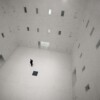
Claiming the Courageous Middle: Daring to Live and Work Together for a More Hopeful Future
As the subtitle suggests, Shirley Mullen’s new book, Claiming the Courageous Middle, invites believers to dare “to live and work together for a more hopeful future.” This applies to all areas of life, from family to church membership, and to jobs as well, even that of professor. I don’t refer to professors as daring; I’d reserve that adjective for cave divers or pediatric oncologists. I don’t normally see professors as particularly courageous either, a virtue easily seen in hospice workers or linemen. Perhaps I’m wrong on both counts. Her fresh perspective entices my slogging, burnt-out professor’s soul toward renewal, inspiring me to teach with courage and towards hope in order to empower and extend the virtues necessary for creatively engaging our most vexing social issues.
Mullen, who has spent forty years serving many roles in Christian colleges and universities, including fifteen years as president of Houghton University, offers a vision (along with concrete examples) of Christians actively choosing to host imaginative convenings of middle space that invite creativity, hope, and restoration in polarized spaces. It’s an invitation to live out our Christian faith through “practical wisdom, the work of creativity, the work of faith in realities we cannot see, and the work of partnership in the great cosmic exchange that will someday trade our spirit of heaviness for a garment of praise.”1 When tempted or even pushed to adopt a side and dig in our heels, and be lauded for courage in “taking a stand”, Mullen suggests instead that we stay in the middle, inviting others to join us, and counting the costs this may incur.
The book is epistemologically rich, moving around the Wesleyan Quadrilateral of experience-tradition-reason-Scripture as Mullen shares her personal narrative, Wesleyan perspectives, biblical exploration, and descriptions of society’s challenges. It could be assigned in a wide variety of courses that address vocation or Christian social responsibility. Professors who adopt this book for courses can lean on various chapters, depending on whether their course is most concerned with personal narrative, social analysis, biblical study, or theology. Universities could use the book to support campus-wide education and capacity-building with students, staff, and faculty.
Thus began the book review I intended to write. However, my enthusiasm for the book overflowed the book review genre, so instead I offer a testimonial of how I put Claiming the Courageous Middle into practice.
Many professors, probably most, teach subjects that are challenging in their own right but that are made even more tricky – bedeviling, even – by our social context. There’s evolution for the biologists, partisan politics for political scientists, and the authority of Scripture for Bible and theology professors. For social scientists such as myself, race, gender, and sexuality fit this slot. We may wish to dwell upon the complexity and history of the subjects themselves, but it’s hard to get there when they are so quickly hitched to partisan politics, online disinformation, or social media energies. The possibility of being recorded or streamed without consent, or of online malice, is a realistic fear for teachers, so much so that classrooms may feel more like entirely public conflict zones rather than havens of careful instruction and exploratory dialogue. I’m sure I’m not alone in my discouragement over these dimensions of our social context that produce costly distractions from what I really want to do: dwell on ideas and texts in their purity, relevant to – but for a precious few hours set apart from – sociopolitical energies.
I regularly teach Race and Gender. Sometimes it goes well and sometimes it doesn’t, true for all of my classes. But one semester in a class small enough that we sat in a circle, a negative ethos mounted like gathering clouds. It was sparked by concerns over capital letters, hyphens, the identities of authors, and the limited perspective of the professor due to her gender and race. The students saw these notions as flowing from their creative and critical thoughts, but I saw them, or at least a good portion of them, as structured by Internet discourses. Good stuff, I thought, for a rich semester of building trust sufficient for examining what and how we know. Alas, these grievances gave way to something even worse, silence. At the nadir, after asking, “Could someone offer a response to this reading?”, and hearing crickets, I put my head down on a desk and we sat there for a very long and very uncomfortable time.
When I held a special listening session to ask, “What’s going on here?” I received a barrage of complaints that I don’t need to list for you to understand my point. The point is that this was a teaching disaster, closely connected with race, gender, and sexuality: a microcosm of society’s polarization and intractable conflict. I took it personally, as professors are prone to do, and for future semesters taught these subjects warily, with more energy put into self-protection than into pedagogical creativity or open-hearted inspiration.
Enter Claiming the Courageous Middle. I read sweeping examples of groups and individuals cultivating brave and intelligent engagement with the world’s most pressing issues. I read about biblical teachings and theological streams that carry the message of hope and Good News across time and to many social contexts. And I felt convicted by this passage:
This embracing of humility and making time for such rethinking is the work of those who dare to sign up to be ambassadors of the courageous middle. It is hard work. It is creative work. It is work that the church is not well practiced in…[It is] the urgent call to learn what it means to be faithful while also facing, with ruthless honesty, the tensions, complexities, and ambiguities of our world. This is the invitation before us.2
The conviction was two-fold. First, exchange self-pity and self-blame for humility. This turning – a kind of repentance – may be familiar to anyone who has ever received a course evaluation. Second, very specific to my class this semester, meet James Baldwin’s ruthless honesty with your own.
That was the invitation before me. I gave it my all, letting students see the passion, concern, and enthusiasm that Baldwin’s The Fire Next Time evokes in me, both over America’s well-being and over the integrity and vulnerability of each human person. The teaching challenge wasn’t about the book or the topic per se; rather, it was summoning the courage to open my heart again, inviting students to join me in facing and feeling the tensions, complexities, and ambiguities of race in our world.
This particular class had a moderate vibe and this day was no exception. Students offered interesting thoughts, most took notes, and a few forgot to bring the book to class. One, a white man in a baseball cap sitting in the back row, raised his voice to comment on Baldwin. “This guy is mind-blowing! We’ve got to listen to this! We’ve got to wake up!” He read an entire paragraph out loud, exuding so much energy that a few students glanced at each other and me, as if to ask if the student was ok.
In The Fire Next Time, Baldwin encourages incisive self-examination, persistent refusal of the delusions of self-interest, and both an acceptance and a giving of love that crosses races, and that in the crossing, transcends existing social divisions.3 He promotes no side and encourages no earthly partisanship. It takes courage – for Baldwin and also for his readers and enthusiasts – “to hold out to the larger community truths that are not so much controversial as they are inconvenient in a moment of polarization” (63). The beauty of one awakened soul calls to others, and the ripples reach out to communities and societies. And I was there to witness it, the awakening of one student to a text in the presence of the classroom community (what a delight)! In Mullen’s words, small moments like this are part of “the work of calling communities to imagine new possibilities that point beyond the all-too-often limited, binary, or polarized choices that fail to capture the complexities of this most strange and wondrous, created but fallen world.”4
Thus concludes my testimonial, a story of one moment in one session of one class in one semester, just a drop in the ocean that is higher education. John Wesley certainly believed in the power of small numbers, the incarnate beauty of one heart strangely warmed. Mullen extends to each of her readers an invitation to take up the responsibility of doing their part.
One of the most truly en-couraging messages of the book is not a new idea of Mullen’s, and it does not require us to learn or to do or to become anything new. It’s the old, old story of Jesus and his love, the firm source of the courage and hope that we need in our vocation as educators.
…God has not left us along in figuring it out. We can take great comfort in our Lord Jesus’s promise in John 16:13 to send the Holy Spirit, the Spirit of truth, who will not only be our Advocate but also our Guide into all truth. We dare proceed in our calling to work in middle space only in the confidence of that promise.5
Footnotes
- Shirley A. Mullen, Claiming the Courageous Middle: Daring to Live and Work Together for a More Hopeful Future (Grand Rapids, MI: Baker Academic, 2024), 138.
- Mullen, Claiming the Courageous Middle, 72.
- James Baldwin, The Fire Next Time (New York: Dial Press, 1963).
- Mullen, Claiming the Courageous Middle, 108.
- Mullen, Claiming the Courageous Middle, 108.
























Jenell,
Thank you for this encouraging and courageous review. I think you sum the problems up well with, “they are so quickly hitched to partisan politics, online disinformation, or social media energies.” A great way to characterize so much that’s at the root of our socio-political woes.
Nice, honest article Jenell. It’s interesting you discuss Baldwin, since a recent column also discussed him as helping to explain our problems with debate and discussion, and our refusal to admit “brokenness.” I found this to be quite insightful: https://martycenter.org/sightings/james-baldwin-and-the-cost-of-community
Thank you, Mike, for that article. I love how he describes the fear of death and the fear of reality as connected – do we really want to know what is real, about ourselves and our world? Reality will, of course, include death. Baldwin writes with the energy and rhythm of the preacher-self that he left behind in his teenage years, and a resurrection theology would be so much more powerful than an acceptance of tragedy. We need not accept that life is tragic – we can believe that a living God is active and loving, always on our side, in this life and for eternity.